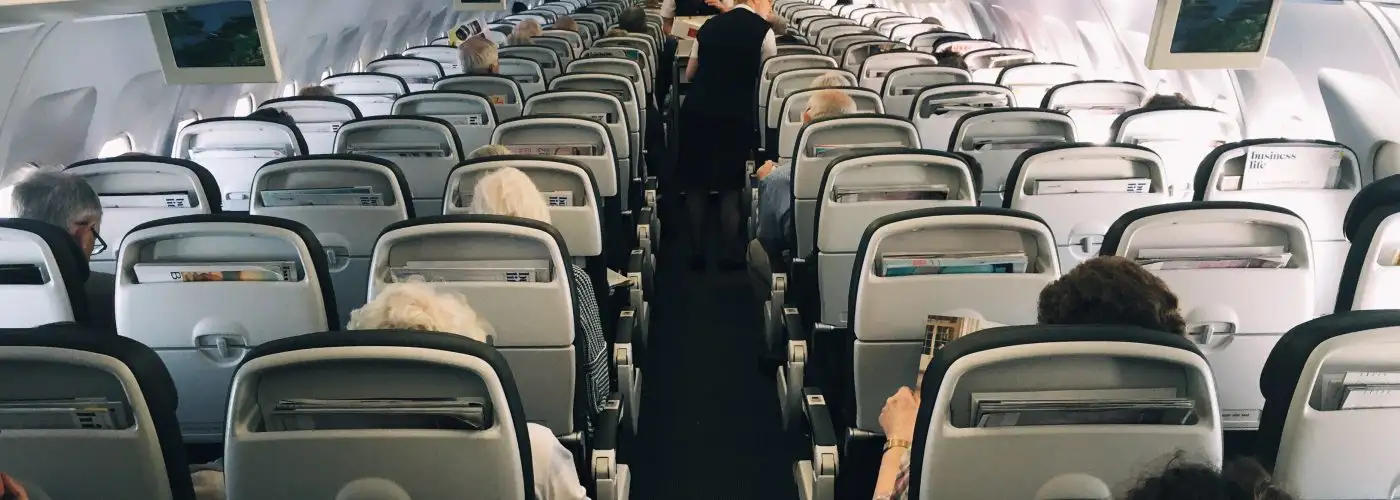In a fact sheet issued last month, IATA, the International Air Transport Association, calls them “unruly passengers,” and deems them a “significant problem.”
In case you don’t get the reference, here’s what’s at issue:
Unruly passenger incidents include violence against crew and other passengers, harassment , verbal abuse, smoking, failure to follow safety instructions and other forms of riotous behavior. Although such acts are committed by a tiny minority of passengers, they can create inconvenience, threaten the safety and security of other passengers and crew, and lead to significant operational disruption and costs for airlines.
Between 2007 and 2015, IATA collected 49,084 reports of such incidents. A majority of IATA airlines (53 percent) reported that air-rage incidents had increased during the past five years, and 40 percent had diverted a flight due to an unruly passenger during the past year.
With airline load factors now routinely averaging in the 80s, there’s no question that air rage is a real problem for travelers and for the airlines. And it’s a problem that will likely further intensify for the foreseeable future. IATA’s focus is on fortifying the legal consequences for such behavior, in the interest of preventing it. In the meantime, airlines are mostly left to their own devices when it comes to handling disruptive passengers.
How they’re dealing with such incidents received some major media attention in late December, when the semi-well-known singer Richard Marx assisted the cabin crew of a Korean Air flight in subduing a passenger who became physically and verbally abusive in flight. Among other measures taken by the Korean Air crew to control the passenger, a flight attendant produced a Taser, a non-lethal weapon designed to stun victims into submission. As reported by Marx’s companion, however, the attendant was unable to properly use the Taser, and the disruptive behavior continued for four hours.
At least partly in response to that incident, Korean Air will be enhancing Taser training for its cabin crew, and adding more male crew members, according to NBC News.
The prospect of flight attendants armed with stun guns is equal parts alarming and comforting. Yes, there’s the reassuring sense that the good guys are equipped to quell onboard disturbances. But, as with guns kept for home protection, there’s also the very real possibility of the disruptors disarming the crew members and using the weapons against others.
While the debate over this issue hasn’t yet begun, it’s not too soon to begin considering the pros and cons. At some point, decisions will be made, and travelers’ opinions will affect those decisions, one way or the other.
Reader Reality Check
Should flight attendants be equipped with Tasers?
More from SmarterTravel:
- Last Day for 100,000-Point Credit Card Bonus Is January 11
- Earn Triple Miles for All British Airways Flights
- Carnival Has a Plan to Transform Cruising
After 20 years working in the travel industry, and 15 years writing about it, Tim Winship knows a thing or two about travel. Follow him on Twitter @twinship.
We hand-pick everything we recommend and select items through testing and reviews. Some products are sent to us free of charge with no incentive to offer a favorable review. We offer our unbiased opinions and do not accept compensation to review products. All items are in stock and prices are accurate at the time of publication. If you buy something through our links, we may earn a commission.
Related
Top Fares From
Today's Top Travel Deals
Brought to you by ShermansTravel
Shop and Save with Country Inns...
Patricia Magaña
 Hotel & Lodging Deals
Hotel & Lodging Deals
$229 -- Chicago: Discounted Rates and...
Francesca Miele
 Hotel & Lodging Deals
$229+
Hotel & Lodging Deals
$229+
$188 -- Honolulu: Save on Oceanview...
Abigail Lamay
 Hotel & Lodging Deals
$188+
Hotel & Lodging Deals
$188+




